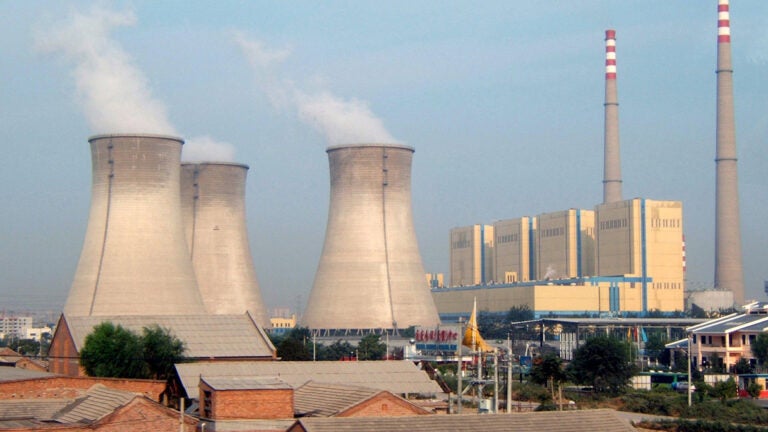
Metals from China are ending up in the Pacific Ocean, with uncertain consequences
Emissions from coal-fired power plants in China are fertilizing the North Pacific Ocean with a metal nutrient important for marine life, according to new findings from research led by scientists at the USC Dornsife College of Letters, Arts and Sciences.
The researchers believe these metals could change the ocean ecosystem, though it’s unclear whether it would be for better or worse.
The study, which appears in the Proceedings of the National Academy of Sciences, shows that smoke from power plants carries iron and other metals to the surface waters of the North Pacific Ocean.
“This work shows fossil fuel burning has a side effect: the release of iron and metals into the atmosphere that carry thousands of miles and deposit in the ocean where they can impact marine ecosystems,” said Seth John, lead author of the study and an assistant professor of Earth sciences at USC Dornsife. “Certain metal deposits could help some marine life thrive while harming other life.”
Confirmed: Ocean metals stem from China
In May 2017, the scientists boarded a research vessel and took water samples at latitudes between 25 degrees and 42 degrees north. They found peak iron concentrations in about the middle, which corresponded with a big wind event over East Asia a month earlier.
In addition, the scientists found elevated lead concentrations coincided with the iron hot spots. Moreover, the metals in the seawater samples bear telltale traces of Chinese industrial sources, the study says.
“When we collected samples in the ocean, we found that the iron isotope and lead isotope ‘fingerprints’ from seawater matched those of anthropogenic pollution from Asia,” said Paulina Pinedo-Gonzalez, a USC Dornsife postdoctoral scientist and study author who is now at the Lamont-Doherty Earth Observatory at Columbia University.
What does the abundance of metals mean for marine life?
The North Pacific notably lacks iron, a key micronutrient, so an influx of metals and other substances can help build the foundation for a new ecosystem — a “good news, bad news” outcome for Earth.
“In the short term, we might think that iron in pollution is beneficial because it stimulates the growth of phytoplankton, which then take carbon dioxide out of the atmosphere as they grow to offset some of the carbon dioxide released during the initial burning process,” said John.
“However, it’s totally unsustainable … because of the deleterious effects of pollution on human health.”